- Home
- Edmund White
City Boy Page 27
City Boy Read online
Page 27
Studio 54 had a giant, smiling man in the moon up above the dancers slowly shoveling a spoon of cocaine toward his nose, over and over. This was still when many acquaintances assured me that cocaine was harmless and not addictive. People joked that it was the perfect yuppie drug since it made your head clearer and inspired you to want to work even more.
Dick Sennett’s salon was far from the Studio, though no less exclusive in its way. Dick was an ambitious if hit-and-miss cook, and he could often be found concocting a complicated dish out of the latest cookbook—something he would serve informally.
But no one paid much attention to the food or the liberal lashings of plonk. It was all a plush background for the startling mondaine reality in the frame: the good talk and the promise of even better talk. Dick knew not to quiz the great about their Subjects, their Accomplishments, but rather to tease them about their secret Vices, their hidden Charms, their unheralded powers of Seduction. He was always grabbing the hoary hand of a grizzled Oxford don and saying, “Oh, what a naughty pussycat you are! Aren’t you? Aren’t you? Such evil, evil naughty thoughts—and Deeds! Yes, Deeds, Mr. Pussy-Boy. Okay, everyone, à table, à table, and remember: Paws up!” No one quite knew what paws up meant, but it sounded like a cross between an eating-club slogan and a half-forgotten piece of nursery (or else Masonic) mummery. All these lonely intellectuals, their eyes hollowed out from years of reading microfiches and medieval script, their voices hoarse from gabbling to themselves over tinned beans and Bovril in unheated Rooms, were now being stroked and feted and fed. They were like feral cats being tickled behind the ears for the first time. They were purring, though still looking around anxiously for the next boot in the rear, the next nasty review by a rival in the Times Literary Supplement. Nor did Dick invite just the old and famous. He knew they needed young and lovely nobodies to make a fuss over them. Given the average age in the room, anyone under fifty counted as young.
Dick was what the French call a mythomane, which involved a flexible and always entertaining approach to the truth, which he never twisted to his advantage. He wasn’t trying to impress anyone or get ahead with his tall stories. No, he was just daydreaming out loud, expanding the narrow repertory of the actual, adding a herbaceous border of the imaginary to the dull gravel path of the real. His mythomania could also be a form of nearly oriental politeness. For instance, he met Susan Sontag and Joseph Brodsky at nearly the same moment. To Susan he said that he, like her, had just survived a serious cancer, whereas to Joseph he said that like him he’d just had a nearly fatal heart attack. No one much minded when the truth came out that Dick was in perfect health, both in the past and the present. People just smiled a bit sheepishly and shrugged. No harm done…
I heard three versions of his childhood from him. Once he was raised by socialists on Chicago’s South Side. Once his parents were a “radical” lesbian pair in Minnesota. And once, when we were strolling through the Île St.-Louis in Paris, I said, “Isn’t this the most beautiful perfect place?” and he said, “I’m so glad you like it. I was raised here by my French aunts as a child just after the war,” and he vaguely waved toward a darkened hôtel particulier along the Quai de Bethune. But why, if he’d grown up there, did he grope for words in French and have such an incomprehensible accent?
Then there were all the different versions of why he was no longer a concert cellist—his paralyzed hand was one. But it wasn’t paralyzed. Another was the time he’d vomited into his cello. But why did he play so many wrong notes, even though he had a scarily professional way of freezing his face and breathing through his stiffened nostrils as if he were a Japanese temple-guardian devil or a Dostoyevsky character on the verge of an attack? Dick loved music and he enjoyed concertizing, though it was all pretty hard on the ears. And, hey, does the cello have a hole large enough to vomit into? I think it has just two narrow S-curves on either side of the strings.
But who were we to complain? Dick provided us all with lots of good stories and half our conversation was devoted to his latest inventions and his most notable outrages. Did I tell you about how even though he was nearly bald and the fringe was all gray he tossed back an imaginary braid and exclaimed, “Well, as a blonde…”? Or did I tell you about last night at dinner when he came down the stairs in a little pink dress with shoulder straps, though his shoulders are horribly hairy? And then he changed midmeal to the little black dress? He obviously was nostalgic for the eighteenth century when public acts had been expressive, similar to acts of artistic invention. People are still telling Dick Sennett stories. Just recently, some twenty years later, I met someone who claimed he’d advised Dick on his wardrobe during the drag epoch.
He was wonderfully encouraging as a friend. He hired me to be the executive director of the New York Institute for the Humanities even though I was only marginally an academic and had never been an administrator, except briefly at Saturday Review. The part-time job paid me just twenty-two thousand dollars a year—and my main duty was getting everyone coffee and telling Dick Sennett stories. In many ways, however, I was a good choice. I liked most people, I wanted to know all about their scholarly pursuits, I was even-tempered, and I had a small reputation as a writer. I was teaching a fiction workshop or two at Columbia and another one at New York University. I had a low rent and few expenses.
Dick did everything to encourage me. When I wrote a play, a fairly tedious one, he decided we should give it a reading at the institute. Val Kilmer, at that point a young, unknown actor, agreed to read the young lover. In real life Kilmer’s lover was then reputedly the much older Cher, who would wait for him outside the door in her limo every evening after rehearsals. No fool Cher—she wasn’t about to let this treasure (a drool-makingly young, masculine heterosexual beauty) escape from her. The other actors were Bob Gottlieb’s wife, Maria Tucci, and David Warrilow, one of the leading interpreters of Samuel Beckett. Later I would see him perform in French in Paris, and no one there would believe he wasn’t born French, so perfect was his accent. He told me that he’d so hated being English that he’d “acted” his way into being a French actor with total conviction. He had a brief movie career in Barton Fink and The Last Days of Immanuel Kant, but he was too depressed and drank too heavily to be a Hollywood actor. Maria Tucci, whose father was Niccolò Tucci, the Swiss-Italian writer, had had to sacrifice her acting career because of a sick child, but eventually she returned to the stage—and to television in Law & Order.
Dick took me seriously at a time when almost no one else did. I’d brought Patrick Merla to the institute and Dick put him in charge of the W. H. Auden festival that lasted for several days. Patrick, who’d never attended a university, knew more about everything than the rest of us put together and was an excellent poet. The institute gave glamorous parties as book launches for its members. But what it mainly did was hold once-a-week lunches in the Deutsches Haus just next door to Dick’s own mews house. Visitors from all over the world presented their latest thoughts and findings in an informal, collegial way, and the question-and-answer periods following the brief talks were as stimulating as any I ever attended.
We invited Borges to come to New York. He and his companion, Maria Kodama (later his wife), had to fly first-class, of course, from Buenos Aires, and we arranged for them to stay in a beautiful NYU apartment looking down over Washington Square. The only drawback was lack of room service. Maria Kodama called me on a Sunday afternoon and asked, “Who will wash out Borges’s underthings?” I thought to volunteer my own services but I was afraid of embarrassing everyone. Finally I had to hire a maid at a hundred dollars an hour to go over there on Sunday evening and wash out the distinguished panties.
Borges gave a talk, one of the two talks he gave everywhere all the time with no variation. There was an overflow crowd of admiring students, so many that his voice had to be piped out to the sidewalk where hundreds more were gathered and listened reverently. This talk was his one on how the best metaphors are clichés because they’re true: Life Is a
Dream and Time Is a River, and any effort to invent newer, fresher images is false and misleading. No one paid much attention to what he was saying. He was iconic because he’d written a half-dozen brain-twisting stories of an admirable lightness in the late 1930s and early 1940s, stories that tapped the urbane tone of G. K. Chesterton and other Edwardian writers of his youth, authors his Scottish grandmother had read to him in Argentina so long ago. Now all these years later he was invited everywhere because of these few brilliant stories that few people in the audience would have read, much less understood. Wherever he went, he talked about dead metaphors being the best ones. Right after he left us he went up to Cornell for a Nabokov festival. There he admitted he’d never read Nabokov, but he did have this little speech about dead metaphors he could deliver. I read the clippings from various local papers as he made his way across America. In each city he gave the same lecture about the beauty and rightness of dead metaphors. I suppose I’d never before witnessed up close such a huge career nor noticed how his was based on such a slim oeuvre written four decades previously.
While he was still in New York, a ritzy Hispanic society gave a banquet in his honor on Park Avenue. I was seated next to Borges, and all through the meal he kept asking me to tell him all the latest dirty words in English. Since he was blind, he couldn’t see the snowy-haired matrons of the Cervantes Club or whatever it was called bending their heads closer to catch the drift of the great man’s conversation … Luisa Valenzuela, the Argentine novelist, was a member of the institute. She told us that she thought of Borges, with whom she’d collaborated, as a big, unformed baby who’d been coddled by his mother and then married off to a young wife soon after his mother’s death—though I thought of Maria Kodama as more a child than a mother substitute.
The institute had one seminar that trailed on for years on sex and consumerism. Broadly speaking, we were all interested in those days in how culture and especially material culture interacted with economic and class pressures and the conflicts generated by the gender divide. Now these connections are familiar and throw off fewer sparks, but back then we were reading Gramsci and members of the Frankfurt School and the Roland Barthes of the Mythologies and the Foucault of Madness and Civilization because we were no longer Marxists and we no longer believed in the determining role of class warfare, but we still thought that the world around us had hidden patterns to be traced, particularly in the underlying culture, not just economics. The sex and consumerism seminar could become heated and certainly heterodox.
I would dart around making people coffee, printing up programs, fussing over the schedules and budgets and room assignments, but I enjoyed dropping in on the biography seminar of Aileen Ward, the Keats scholar, or chatting with John Guare, the playwright who’d written Six Degrees of Separation and was the most tireless culture vulture I’d ever known. Barbara Ehrenreich, who would later become famous for Nickel and Dimed, her book about living for a year as a minimum-wage earner, was concerned with social issues in a familiar left-wing way, as was Todd Gitlin, an expert on the New Left during the 1960s. Doug Ireland was the most outspoken Leftist in our midst. He was a big, lumbering man with a broken voice whose body was constantly racked with pain. His parents, Christian Scientists, had not allowed him to be inoculated against polio, and he was one of the last kids to contract the disease in the 1950s. Perhaps not coincidentally, Doug became a militant atheist. He wrote regularly for the Village Voice, which back then was still a genuine alternative newspaper of some interest. Doug lived in France for a decade and befriended the charismatic French novelist and gay liberationist Guy Hocquenghem, who wrote the first book ever anywhere of queer theory, Homosexual Desire (1972), and codirected with his lover Lionel Soukaz an early film about the history of homosexuality, Race d’Ep. I used to sit around in rooms in Paris full of hashish smoke and talk to Doug and Guy with his strange beauty, pale and precise as if carved out of ivory, and the philosopher René Schérer (with whom Guy wrote a last book, The Atomic Heart).
Back in the days of the institute Doug was living in his office. He’d hang up underthings to dry in the small room and had a hot plate for cooking eggs. Dick Sennett was always in a bit of a rage against Doug for breaking the rules and posing a fire hazard, but he respected Doug’s militancy and was intimidated by his mocking self-assurance. At that time, just at the end of the 1970s, the whole country, and New York along with it, was shifting to the right. In the 1960s and early 1970s anyone who held the most extreme Leftist views automatically won the argument, but now middle-class intellectuals, with their tenure and co-op apartments, were beginning to rebel against this tyranny of firebrand rhetoric. In a sense the potential battle between Doug Ireland and Dick Sennett (a battle that was never openly expressed) was an emblem of this troubled and troubling shift. But don’t get me wrong—we all liked Doug, who was generous in a sort of reckless, almost indifferent way, and who laughed at all our sacred cows.
Chapter 18
The biggest star at the New York Institute for the Humanities was Susan Sontag. I think I must have met her at Dick Sennett’s house. At least I imagine I fell into a conversation with her, she who had been my idol for many years. It’s strange that I can’t remember our first meeting since I can remember in vivid detail reading her essay on pornography when it first came out and agreeing and disagreeing with it in such an intense way. I read it because it addressed thoughts I’d had for years but not known how to formulate. Reading the essay on camp was the same gripping experience. To be sure, Isherwood in one of his novels, The World in the Evening, had mentioned camp (high and low), but Sontag thoroughly explored the subject and saw it as a way of rescuing failed glamour—“so bad it’s good”—and putting the world in quotation marks, of aestheticizing all experience. Everyone, even Time magazine, grabbed on to “Notes on Camp” as a kind of parlor game, the exploitation of a vogue word, the pinpointing of a new sensibility. Sontag, as I learned later, had been influenced by a friend from her Paris days, the American film expert Elliott Stein: a gay man famous for his whip collection. Stein helped her trace the contours of this unfamiliar aesthetic. I’d known about a louder, brasher street version of camp—one drag queen would shriek at another, “Stop camping, bitch!” I hadn’t really encountered this other sensibility, which was funny and seemed to have mainly to do with old movies and preposterous divas. What became clear in reading and talking to Sontag was that she wrote best about subjects she was most ambiguous about. Campiness both attracted and repelled her. Indeed her whole personality was based on this same push-pull dynamic. After we became friends I once told her I wanted to write a book about her called The Dandy and the Rabbi, since I felt that around aesthetes she became moralistic and around moralists she embraced art and frivolity. With her characteristic anti-Semitism she murmured, “It might be better to call it The Dandy and the Priest.”
No, it wasn’t that she was particularly anti-Semitic, but rather that she was opposed to anything that wasn’t “central to our culture,” as she would have put it. She was like Proust, who in his novel preferred to present himself in the form of Marcel, his narrative alter ego, as Catholic instead of Jewish. Anything offbeat—homosexuality, Judaism, being African-American—she disapproved of. She was a universalist in the true French sense, believing that Man at his best was an abstract individual in the eyes of the state, the law, humanity itself. To the degree that that abstraction was qualified (female, homosexual, black, Jewish), it was reduced. The French believed fervently in universalism, and Sontag was more passionately a Francophile than she was American.
But then again she was also just a bit anti-Semitic and homophobic. She once told the African-American novelist and essayist Darryl Pinckney that he was “reducing” his stature as a writer by calling himself a black writer. She asked me how I could bear to be considered a gay writer. Her questions were meant to guide the people she cared about, Darryl and me among others, away from our own “narrowing” labels. And it’s perfectly true that she mainta
ined world-class status partly by staying in the closet.
Toward the end of her life she told Brendan Lemon, then the editor of Out magazine:
I grew up in a time when the modus operandi was the “open secret.” I’m used to that, and quite okay with it. Intellectually, I know why I haven’t spoken more about my sexuality, but I do wonder if I haven’t repressed something there to my detriment. Maybe I could have given comfort to some people if I had dealt with the subject of my private sexuality more, but it’s never been my prime mission to give comfort, unless somebody’s in drastic need. I’d rather give pleasure, or shake things up.
Soon after I met Susan I started hanging out with her. Other people have described how going out in public with her was like being seen with royalty. By and large New Yorkers were too discreet to bother her, but they did recognize her, especially at cultural events—at the ballet, at movies, at lectures. Phillip Lopate in his Notes on Sontag talks about how she’d stroll about in front of a movie audience before the lights went down, supposedly looking for someone but—in his opinion—making sure that everyone was aware of her presence. On the other hand, Susan didn’t like people to refer to their friendship with her in print. I remember that the talented, if bitter, writer Gary Indiana, who wrote about heroin in a powerful novel of the period called Horse Crazy, remarked in the Village Voice that Sontag knew all the best Chinese restaurants in Manhattan—and for that one indiscretion he was banished from court. It was a bit like socializing with Prince Charles, I suppose. I’ve known writers and actors who’ve spent weekends with him but they never refer to it in print.

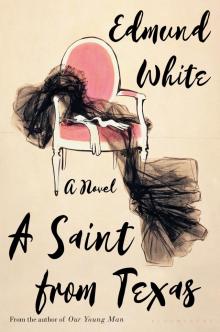 A Saint from Texas
A Saint from Texas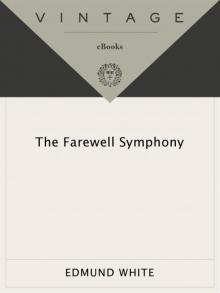 The Farewell Symphony
The Farewell Symphony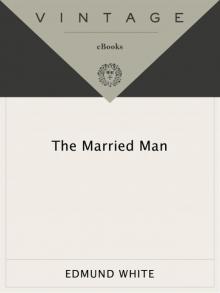 The Married Man
The Married Man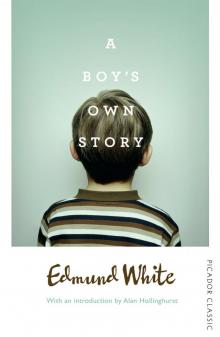 A Boy's Own Story
A Boy's Own Story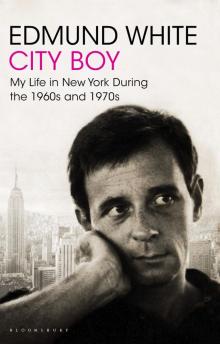 City Boy
City Boy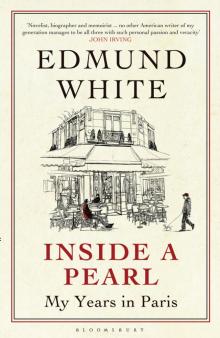 Inside a Pearl
Inside a Pearl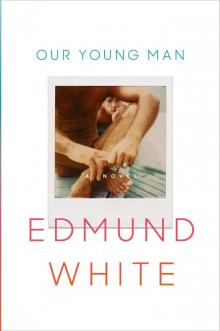 Our Young Man
Our Young Man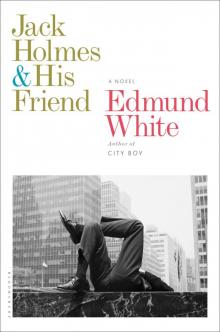 Jack Holmes and His Friend
Jack Holmes and His Friend